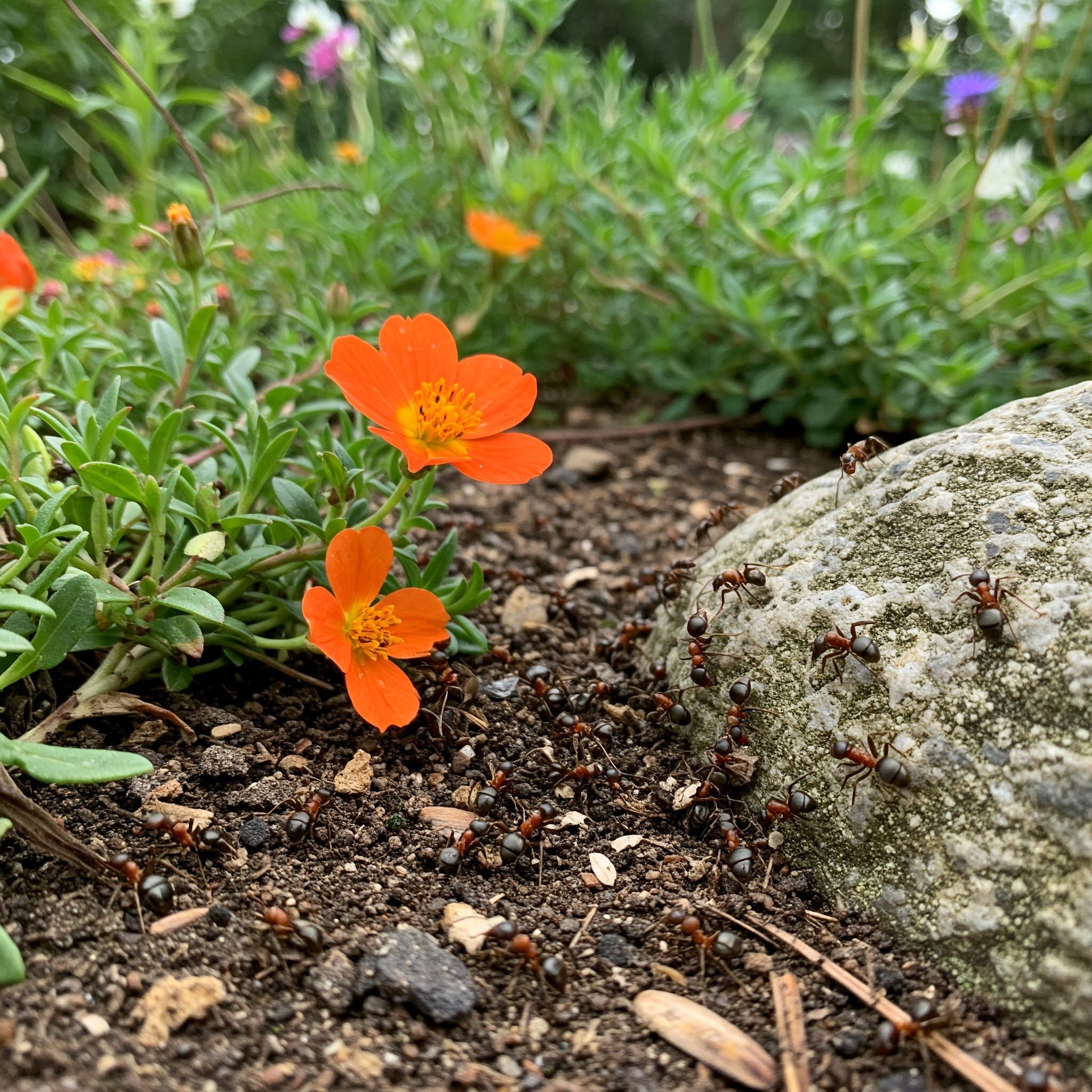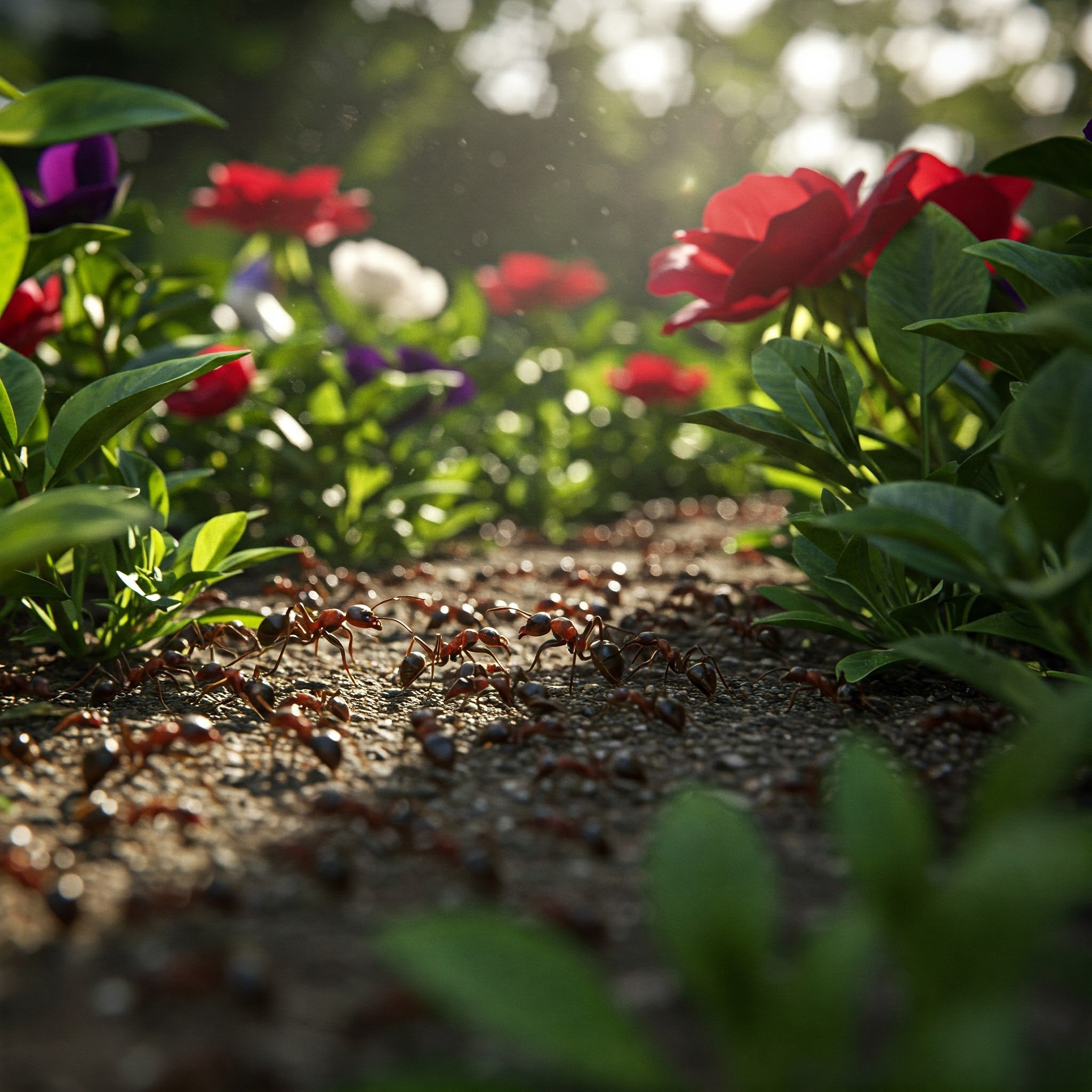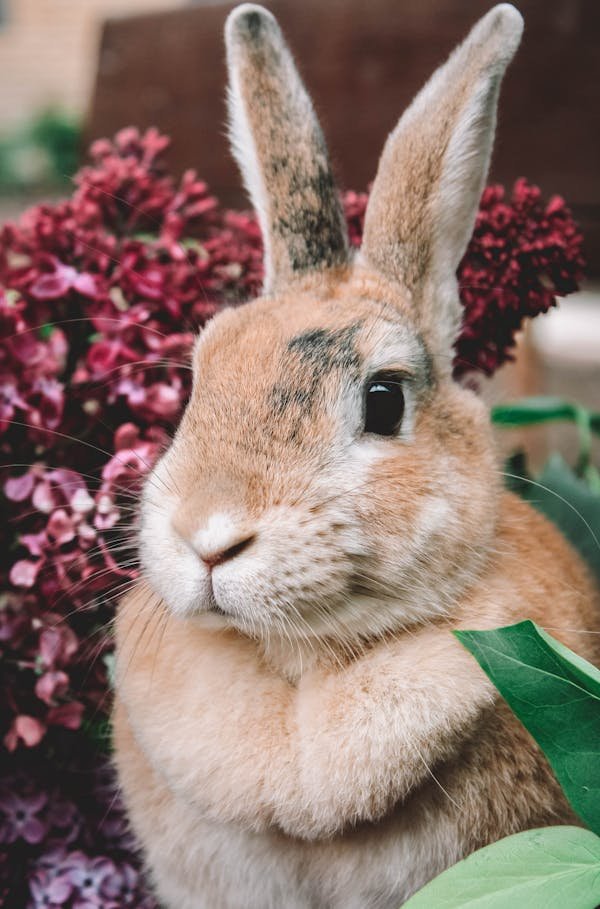How to Get Rid of Ants in Garden Without Killing Plants
Discover natural, eco-friendly solutions with our ultimate guide on How to Get Rid of Ants in Garden Without Killing Plants. Uncover step-by-step methods, practical tips, and FAQs that help you keep your garden ant-free while preserving your cherished greenery!
Ever found yourself scratching your head over an ant invasion in your garden, all while desperately trying to save your beloved plants? Well, you're not alone! Garden pests can be a real nuisance, but here’s some good news: you can tackle those tiny invaders without resorting to harsh chemicals that harm your greenery. In this guide, How to Get Rid of Ants in Garden Without Killing Plants is not just a catchy title—it's your blueprint to a thriving, ant-free outdoor oasis.
Whether you're a seasoned gardener or a newbie trying to nurture your little patch of nature, this article will walk you through everything you need to know. We’re talking natural remedies, clever DIY fixes, and practical strategies that work like a charm. So, grab your gardening gloves, put on your thinking cap, and let's dive into a world where ants are shown the door, and your plants get all the love and care they deserve.
Understanding the Ant Problem
Why Are Ants Invading Your Garden?
Ants, those tiny busybodies, can be both beneficial and bothersome. On the one hand, they help aerate the soil and even contribute to decomposition, but on the other, they can form unsightly trails and farm aphids, which may damage your plants. It’s a double-edged sword, isn’t it?
Farming Aphids:
Ants love to "milk" aphids for their sugary secretions, known as honeydew. This symbiotic relationship can lead to an explosion of both pests in your garden.Soil Disturbance:
Their tunneling might seem harmless, but too much disruption can uproot delicate plants and interfere with your garden’s nutrient balance.Food Sources:
If your garden is brimming with organic debris or fallen fruit, it’s like a five-star buffet for ants!
Understanding why ants are attracted to your garden is the first step in learning How to Get Rid of Ants in Garden Without Killing Plants. Once you know what lures them in, you can better plan a strategy to send them packing.
When Are Ants Helpful?
Before we dive into elimination tactics, let’s not paint all ants with the same brush. Believe it or not, these little critters do play a helpful role:
Natural Aerators:
Their tunnels can improve soil drainage and promote beneficial microbial activity.Scavengers:
They clean up decaying plant matter, which, in moderation, helps recycle nutrients back into your soil.
It’s all about balance—encouraging the good and curbing the excess. The key lies in knowing How to Get Rid of Ants in Garden Without Killing Plants while preserving the benefits they sometimes bring.
Natural and Safe Strategies: How to Get Rid of Ants in Garden Without Killing Plants
1. Create a Barrier with Natural Deterrents
Barriers are your first line of defense. The goal is to create a physical or chemical boundary that ants simply won’t cross, yet is completely safe for your plants.
Copper Tape:
Lay strips of copper tape around plant beds or containers. The slight electrical charge when ants try to cross acts as a repellent. It’s an age-old trick that works like a charm!Diatomaceous Earth (Food Grade):
Sprinkle this fine, natural powder around the base of plants. It’s harmless to humans and plants but lethal to ants—its microscopic shards pierce their exoskeletons, leading to dehydration.Citrus Peels:
Scatter pieces of lemon or orange peels around your garden. Ants tend to avoid the strong citrus scent, making these peels a tasty natural deterrent.
These natural barriers not only keep the ants at bay but also add an eco-friendly twist to your gardening routine. Remember, the aim is to find How to Get Rid of Ants in Garden Without Killing Plants without resorting to toxic chemicals.
2. Homemade Ant Baits That Won't Harm Your Greenery
If barriers aren’t enough, consider setting up a few homemade ant baits. These baits lure ants away from your plants and gently encourage them to relocate.
DIY Ant Bait Recipe:
Ingredients:
1 cup of water
1/4 cup of sugar
1 tablespoon of borax (use caution and keep out of reach of pets and children)
Instructions:
Mix the water and sugar until the sugar is fully dissolved.
Add the borax and stir until well combined.
Soak cotton balls in the mixture and place them in small, shallow dishes away from your plants.
Monitor the bait stations and replace as needed.
The borax works slowly, ensuring the ants take the bait back to their colony, where it helps reduce the population without causing a toxic fallout for your plants. And yes, this method is a key tip in learning How to Get Rid of Ants in Garden Without Killing Plants.
3. Use Essential Oils as Repellents
Essential oils are another brilliant, natural way to deter ants. They’re safe, effective, and leave your garden smelling delightful.
Peppermint Oil:
Ants despise the strong scent of peppermint. Mix a few drops with water in a spray bottle and lightly mist around plant bases and along ant trails.Tea Tree Oil:
Similar to peppermint, tea tree oil has potent properties that repel ants. Create a diluted solution and use it as a natural spray.Cinnamon and Clove:
Sprinkling these spices around problem areas can confuse and deter ants. They’re a pantry staple that doubles as an ant repellent!
Using essential oils is a versatile tactic—spritz them on your garden surfaces or even add them to your homemade bait solutions. It’s all about thinking outside the box when figuring out How to Get Rid of Ants in Garden Without Killing Plants.
4. Water and Soil Management
Sometimes, the best solutions are hidden in the everyday maintenance of your garden. Here’s how to adjust your watering and soil care practices to keep ants at bay:
Reduce Excess Moisture:
Ants love damp environments. Ensure your garden isn’t overwatered, and fix any drainage issues. Letting the soil dry out between waterings can discourage ant activity.Clean Up Debris:
Regularly remove fallen fruit, decaying leaves, and other organic matter that might attract ants. A tidy garden is less appealing to these pests.Mulching Wisely:
Use organic mulch sparingly. While mulch is great for retaining moisture and providing nutrients, too much can create a haven for ants and other insects.
By managing your garden’s moisture and cleanliness, you’re not only fostering healthier plants but also making it a less inviting environment for ants. This holistic approach is a cornerstone of How to Get Rid of Ants in Garden Without Killing Plants.
5. Natural Predators and Biological Controls
Incorporating natural predators into your garden ecosystem can be an ingenious way to control ant populations without harming your plants.
Beneficial Insects:
Ladybugs, lacewings, and certain types of parasitic wasps feed on aphids and other pests that ants farm for their sugary secretions. Encouraging these allies can indirectly help reduce ant numbers.Birds and Amphibians:
Attracting birds, frogs, and toads to your garden can naturally keep the ant population in check. Installing birdhouses or a small water feature can invite these beneficial creatures.Nematodes:
These microscopic worms target various garden pests. Some strains are known to affect ant colonies, reducing their numbers without any harm to plants.
Natural predators are a win-win—they keep pests under control while maintaining the delicate balance of your garden ecosystem. Embracing nature’s own pest control is a savvy move in mastering How to Get Rid of Ants in Garden Without Killing Plants.
A Step-by-Step Action Plan
Here’s a concise, easy-to-follow plan that sums up our strategies for How to Get Rid of Ants in Garden Without Killing Plants:
Identify Ant Hotspots:
Walk through your garden at different times of the day to spot ant trails, nests, and areas with high activity.Set Up Natural Barriers:
Apply copper tape, sprinkle diatomaceous earth, and lay out citrus peels around key areas.Deploy Homemade Ant Baits:
Prepare and place ant bait stations away from your prized plants.Spritz Essential Oils:
Use diluted peppermint or tea tree oil to deter ants along trails and near sensitive plant areas.Manage Water and Soil:
Adjust watering schedules, improve drainage, and keep the garden free of organic debris.Invite Natural Predators:
Create an environment that attracts beneficial insects, birds, and amphibians.Monitor and Adjust:
Regularly check your garden for signs of ant activity and tweak your approach as needed.
By following this action plan, you can achieve a harmonious balance in your garden while effectively learning How to Get Rid of Ants in Garden Without Killing Plants.
Troubleshooting Common Issues
Even the best-laid plans can hit a snag. Here are a few troubleshooting tips if you find the ants still making a nuisance of themselves:
When Natural Methods Aren't Enough
Reevaluate Bait Placement:
Sometimes the bait stations might be too close to the plants or not in high ant-traffic areas. Consider moving them to more active zones.Check for Moisture Pockets:
If certain areas remain damp despite your efforts, they might be serving as ant havens. Look into additional drainage or adjust your watering schedule.Observe the Time of Day:
Ant activity can vary throughout the day. If your natural sprays seem ineffective, try reapplying them during peak ant movement times, usually early morning or dusk.
Dealing with Persistent Colonies
Isolation:
If you notice a particularly stubborn ant colony, try to isolate it using additional natural barriers or by manually relocating parts of the colony (if safe to do so).Double Down on Predators:
Enhance your garden’s appeal to natural predators. More birds and beneficial insects can make a significant difference in persistent colonies.
By troubleshooting proactively, you’re well on your way to mastering How to Get Rid of Ants in Garden Without Killing Plants in every situation.
Conclusion
At the end of the day, How to Get Rid of Ants in Garden Without Killing Plants is all about finding that sweet spot between pest control and preserving your garden’s natural balance. Through natural barriers, homemade baits, essential oil sprays, and a few clever tricks, you can keep those ants at bay without harming your cherished plants.
By understanding the behaviors of ants, embracing nature’s own solutions, and being proactive with garden maintenance, you’re setting the stage for a healthier, happier outdoor space. Sure, ants might be small, but when they start marching through your garden, their impact can be significant. Thankfully, with these eco-friendly strategies, you can gently usher them out while letting your plants flourish.
Remember, gardening is as much about trial and error as it is about nurturing nature. Each garden has its own quirks, and sometimes a bit of tweaking is all it takes to achieve success. So, take these insights to heart, experiment with the methods, and soon enough, you’ll have mastered How to Get Rid of Ants in Garden Without Killing Plants—all while keeping your green oasis vibrant and thriving.
Happy gardening, and may your days be filled with the joyful hum of nature—minus the ant invasions!
Frequently Asked Questions
Q1: Will these natural methods harm any beneficial insects in my garden?
A1: Not at all! The techniques described are designed to target ants specifically without disturbing beneficial insects. Do you notice any unwanted side effects when using essential oils or diatomaceous earth?
Q2: How often should I reapply natural repellents like essential oils or diatomaceous earth?
A2: It’s best to reapply after rain or heavy watering—typically every few days—to maintain their effectiveness. Does that frequency work with your current garden routine?
Q3: Can I completely eliminate ants from my garden?
A3: While you can significantly reduce their numbers, ants play a role in the ecosystem. The goal is to manage their population, not eradicate them entirely. Isn’t it better to strike a balance?
Q4: Are there any specific plants that repel ants naturally?
A4: Yes, certain herbs like mint and tansy are known to repel ants. Planting these near vulnerable areas might help deter them. Have you tried incorporating ant-repelling plants in your garden layout?
Q5: What should I do if my ant baits seem to attract more ants instead of repelling them?
A5: This can happen if baits are placed too close to plant beds. Move them to a more neutral area and ensure they’re out of direct contact with your plants. Does repositioning the baits help reduce the ant traffic?







